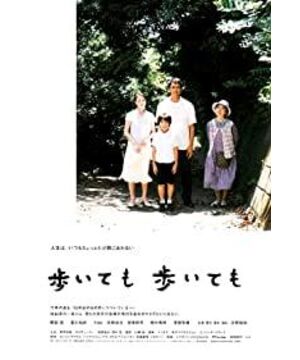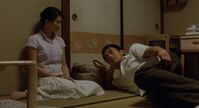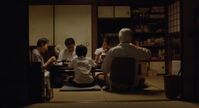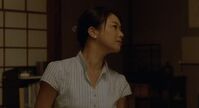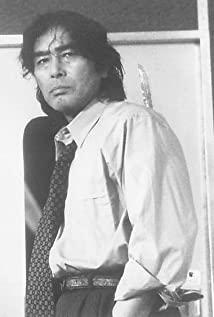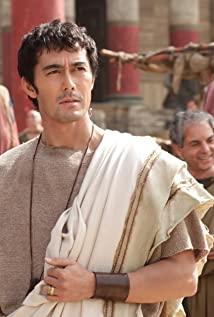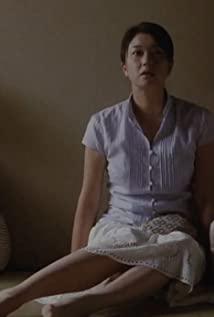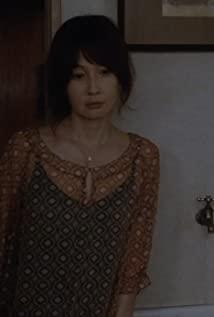Scene 1:
When the family is having dinner, the mother asks Leo to play a disc that has not been played for a long time on the record player. This one appears to have been kept in a drawer specially by my mother (as dozens of other CDs are in many rooms). Many times when I went to play the disc, a voice asked: What kind of music is this? Father: How do I know? This has nothing to do with me. Mother: This has too much to do with you.
The music sounded, and a lot of people said to their mothers that I remember you singing this song sometimes, and my father suddenly raised his head. The mother smiled meaningfully and sighed softly.
The music flows, the family eats, the mother smiles but not the smile, and the father gulps the rice.
"The city's light bulbs are so pretty, aren't they
Yokohama 's blue lights Yokohama
I'm so happy to be alone with you
We'll go all the way
But I can only sway like a boat
I sway gently in your arms
Only our footsteps Follow us
Yokohama's blue light Yokohama,
your soft kiss..."
Scene 2:
After dinner, the father takes a bath first, and the mother brings changing clothes into the bathroom. The camera is on the father.
Father: "When did you buy it?"
Mother: "When I was in Banqiao... I carried Ryota all the way up to that woman's apartment, I could hear your voice and sing in her room, I didn't want to disturb you , so I went home. The next day, I bought this record at the Canary Records Store. Remember to hang up your changed clothes." On the
father's face, there were surprise, emotion, guilt, annoyance, and joy. . . . Mixed flavors. But not a word was said.
The two old people are both over seventy years old. The children grow up, leave, and the branches and leaves are scattered. Another child in his prime died unexpectedly. Whether it is affectionate, noisy, or the pain of losing a child, two people help. It's almost the end of life. The father thought that the transgressions of his youth would leave no trace and no one knew, only an unforgettable memory in his heart (as can be guessed from his sudden movements when the music played), but unexpectedly, his mother had been fully aware of it for decades. On the mother's side, she took the child away step by step on that heartbroken night. The next day, she went to buy a record with this song engraved on it. When she had nothing to do, she would listen and sing alone. Then let life go on.
Scene 3:
In the bedroom, "everyone listens to a song in secret," said many wives.
It was Hirokazu Kore-eda, and he used the language of each film in such a discreet and restrained manner that he hit the hearts of the audience.
In Hirokazu Ededa's collection of essays "The Speed of Walking", he wrote: I think the film should try not to talk about sadness and loneliness, but to express that sadness and loneliness. "
View more about Still Walking reviews


